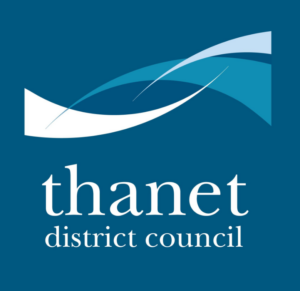- 01843 834160
- [email protected]
- Mon - Fri: 9:00 - 17:00
Revealed: Section 75 credit card protection may fail due to payment processing loophole – shoppers beware

Savvy shoppers who pay with a credit card in order to qualify for Section 75 protection if something goes wrong risk being left £1,000s out of pocket thanks to an obscure and little-understood exemption, a MoneySavingExpert.com investigation reveals.
Under Section 75 of the Consumer Credit Act you can often get a refund from your credit card provider if you purchase an item or service on the card and something goes wrong – such as non-delivery or faults. This strong legal protection leads many people to pay for major purchases on a credit card so they’re covered if the worst happens.
Yet some shoppers are finding credit card firms are rejecting Section 75 claims because the retailer they bought from used a third-party payment processing firm to collect their payment – and there’s widespread confusion about how these rules apply.
Even the Financial Ombudsman Service, which arbitrates Section 75 disputes, is unable to provide clear guidance. It says buying from a retailer using a third-party processing firms will void your usual Section 75 protection in some but not all cases – and it won’t say which type of payment is or isn’t protected, leaving shoppers in the dark.
If there’s a third party payments processor, Section 75 may NOT apply
Section 75 of the Consumer Credit Act 1974 is a vital UK law that means that when you buy something costing between £100 and £30,000, and you pay for any of it on a credit card, your card firm’s liable for the whole amount just as much as the retailer if things go wrong. If the worst happens, you can go to the card firm to get your money back. See our full Section 75 guide.
That sounds pretty simple, and often it is – but crucially the law requires a particular relationship to be in place between the card company, the customer and the retailer in order for the protection to apply.
Technically there must be a direct link between the debtor (that’s you, the customer), the creditor (the credit card company – eg Amex, Lloyds, Barclaycard) and the supplier (the retailer who’s selling you the good or service). If that relationship is deemed to be broken by the involvement of an intermediary or third party, Section 75 protection WON’T apply.
The trouble is, deciding whether or not a third party breaks the debtor-creditor-supplier chain is a fiendishly complex and technical matter, and in some cases seems somewhat arbitrary.
‘When you pay by credit card you expect to be covered’
We’ve spoken to a number of MoneySavers who’ve been caught out by this loophole – in some cases they’ve been left £1,000s out of pocket. (ITV’s Good Morning Britain also has the story of someone affected – and MoneySavingExpert.com founder Martin Lewis will be talking about the issue on Wednesday’s show.)
In February 2016 ‘Nick’ (not his real name) paid for a family member’s £6,000 breast surgery on an Amex credit card, in order to qualify for Section 75 protection. However the patient was left unhappy with the work and sought corrective surgery from the surgeon who’d performed the original procedure.
She then discovered the surgeon had moved overseas and therefore couldn’t perform further surgery in the UK, so Nick turned to his credit card company for a refund. Amex rejected Nick’s Section 75 claim on the grounds the payment to the surgeon was collected via third-party firm iZettle, prompting Nick to appeal the decision to FOS last week.
Nick told MSE: “When you pay by credit card you expect to be covered. I feel American Express is just trying to get out of this situation. Unfortunately we are not blessed with the thousands of pounds needed to solve this problem.”
Confusingly, when approached about the dispute, iZettle told MSE it was “frankly surprised” to hear of it because its card-processing services “do not disrupt such rights”. However it was unable to comment on the specifics of Nick’s case. Amex also said it was unable to comment due the ongoing FOS appeal.
We’ve had other reports too – for example, from a MoneySaver who paid £1,000s for a new kitchen and had her Section 75 claim turned down because a third-party processor had been used. Let us know if you’ve had similar problems by emailing [email protected].
Which payment processors are affected?
We’ve covered this issue before with regards to one major third-party payments firm, Paypal. Martin’s PayPal Warning guide explains paying via Paypal will often – though not always – scupper your Section 75 rights.
Yet there are dozens of other specialist payment processing companies worldwide, providing retailers with card terminals and/or the ability to accept online orders made with a credit or debit card – other big names include Worldpay, Sage Pay, Creditcall and Stripe.
Bizarrely, the Financial Ombudsman Service (FOS) told us it’s simply unable to provide a list of different third-party payment mechanisms, or say which ones qualify for Section 75 protection. A spokesperson told us: “The payment mechanism often runs in the background so without doing a full investigation into how exactly a payment has been made in each circumstances we can’t say which ones are and aren’t protected.”
FOS isn’t even able to strictly define what it considers a third-party payment processor to be, saying this too is “very rarely black and white.”
Here’s what FOS was able to tell us about how the rules work:
It’s not uncommon for payments to be made via a third-party payment system, particularly to process credit card payments. However, there are many different types of payment mechanisms and not all of them prevent Section 75 from applying.
Where there is a dispute on this point, we look at the specific payment mechanism used and decide whether Section 75 applies in the particular case.
So if someone has been turned down by their bank or credit card provider and are concerned they have been treated unfairly they can get in touch with the Financial Ombudsman Service and we’ll look at the complaint independently to decide if something has gone wrong.
It also told us:
- It doesn’t matter whether or not you were aware a third party was processing your payment. FOS says what you knew or didn’t know at the time of purchase would have no bearing on its ruling if it’s asked to consider a case.
- It doesn’t matter what’s on your statement. Just because a credit card statement names a third-party payment firm, that doesn’t necessarily mean the link is broken – and you MAY still have Section 75 protection.

Revealed: Section 75 credit card protection may fail due to payment processing loophole – shoppers beware
Does this mean you should no longer rely on Section 75?
Over to Martin. He says: “If you’re buying anything costing over £100, I’ve always suggested you pay for at least some of it on a credit card (repaid IN FULL of course) to get the hugely valuable Section 75 protection. This protection was put into law so that people won’t be left with a debt for something that didn’t work or get delivered.
“There has always been an understandable exemption where things are paid through an agency, such as paying a travel agent rather than airline for a flight. Yet the recent growth of different ways firms can process payment is throwing everything up in the air. We now have the bizarre situation that if you pay on a company’s website, or get given a machine in a shop, some hidden nebulous detail about the way it’s done can invalidate your protection.
“The first thing we need is clarity on this. Companies and payment processors should be made to clearly state when Section 75 doesn’t apply. At the moment, not only do they not tell you, they don’t even know themselves.
“I wouldn’t stop using a credit card to get Section 75 for this – though be aware the problem sadly seems more likely to happen at smaller independent retailers. If you do find your Section 75 case rejected, always appeal it to the Financial Ombudsman (see our How to Complain guide), as card firms may just be trying it on. And remember there’s a second lesser protection called chargeback that isn’t affected by this, so you can try that with your card firm too (see our Chargeback guide for info).
“This is only the beginning of this tale, and MoneySavingExpert will be raising the issue with regulators and politicians to try and get some clarity.”
What do Trading Standards officers say?
Craig McClue, the Chartered Trading Standards Institute’s lead officer and policy executive, told MoneySavingExpert.com: “For decades now it has been a pillar of pre-purchase advice that paying by credit card for goods or services over £100 gives fantastic consumer protection. This is especially true when making expensive purchase decisions such as large electrical items, cars, holidays or building work.
“This can be a complicated area, but it is unacceptable that consumers can lose this protection over a technical detail of which they can never be aware when they hand over their details. The obligations and protections under consumer contracts should be transparent, allowing consumers to make informed purchase decisions.
“At the very least, when a trader uses a third party payment provider and Section 75 may not apply, this should be made very clear before the contract is made. It should not be for the consumer to investigate and unpick the background payment relationships.”
What payment firms say
We spoke to a number of payment processing firms about the issue, and those we spoke to insisted that retailers using their services WOULDN’T affect shoppers’ Section 75 rights.
Worldpay told us a customers’ protection “is definitely not invalidated when a cardholder presents with a Visa or a Mastercard credit or debit card”, while Creditcall said “it doesn’t matter if a payment gateway such as Creditcall handles the authorisation, because it does not participate in the fund transfer”.
The firm iZettle also said shoppers’ Section 75 rights are not affected – even though, as explained above, one MoneySaver found his claim was rejected by Amex as a result.
We’ve made numerous attempts to contact other third-party payment processors, including major industry player Sage Pay and smaller firms Stripe and Sum Up, but they haven’t responded to our questions.
We also approached the Payment Systems Regulator about this issue, which told us to contact the Financial Conduct Authority (FCA). However the FCA refused to give a statement.
Finally we spoke to Lloyds Banking Group – which encompasses high street banks Lloyds, Halifax and Bank of Scotland and credit card firm MBNA – to find out how those institutions assessed such claims. It told us each one was judged “on a case-by-case basis, taking into account a number of factors including whether the payment was directed to someone other than the merchant [retailer]”.
By Faye Lipson












